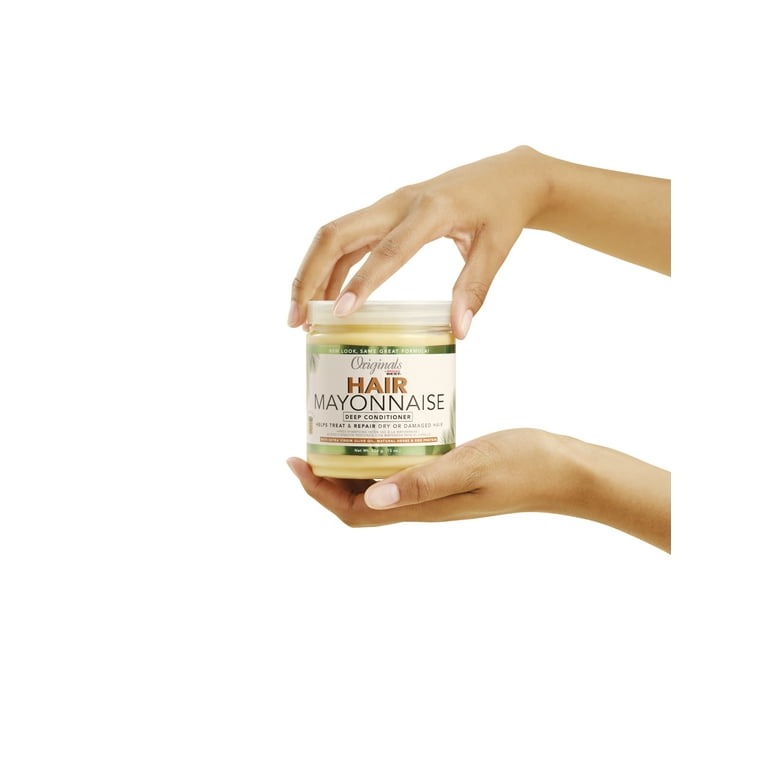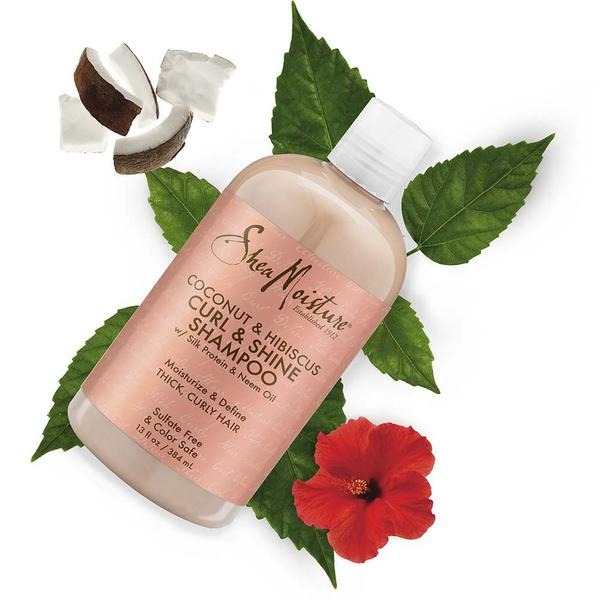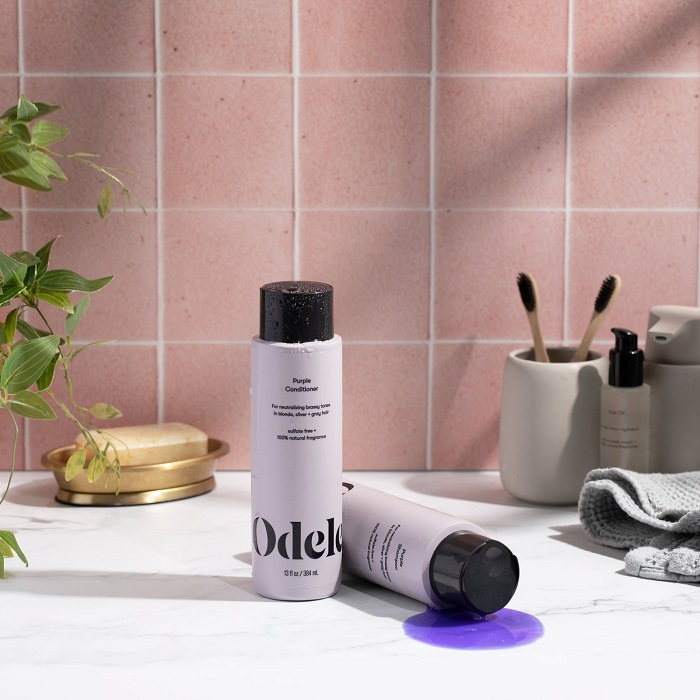Many wonder, “Is conditioner bad for your hair?” when considering their hair care routine. This question often arises from misconceptions and misunderstandings about how conditioners work. In this comprehensive examination, we reveal the truths and myths surrounding this common concern, while offering tips on how to use conditioner effectively.
Understanding Conditioner’s Role in Hair Care
- Moisture Maintenance: One of the primary functions of conditioner is to maintain moisture levels in your hair. It helps replenish the natural oils lost during shampooing, ensuring your hair remains supple and manageable.
- Protective Layering: Conditioner adds a protective layer to each hair strand, safeguarding it against environmental damage such as UV rays, pollution, and heat styling tools. This can significantly reduce breakage and split ends.
- Detangling Benefits: Conditioners help smooth the hair cuticle, reducing tangles and hair breakage during brushing. This is particularly beneficial for those with naturally curly or frizzy hair.
- Shine and Smoothness: By smoothing the hair cuticle, conditioners also enhance hair’s shine and smoothness, making it look healthier and more vibrant.
Debunking Common Myths About Conditioner
- “Conditioner Causes Hair Loss”: A prevalent myth is that conditioner contributes to hair loss. However, conditioners primarily act on the hair shaft and not the follicle, making it unlikely to affect hair growth significantly.
- “Conditioner Makes Your Hair Greasy”: Many believe conditioners result in greasy hair. This usually occurs due to overapplication or using a product not suited for your hair type. Proper usage is key to avoiding greasy results.
- “Non-Curly Hair Doesn’t Need Conditioner”: Some think that only curly hair needs conditioning. In reality, all hair types can benefit from conditioner, which helps maintain overall hair health.
- “Conditioner Isn’t Necessary for Oily Hair”: It’s a common misconception that oily hair doesn’t require conditioner. Even oily hair benefits from moisture balance and can use lightweight, oil-free conditioners effectively.
Advantages of Using Conditioner

- Enhanced Manageability: Regular conditioner use makes hair more manageable, reducing styling time and preventing tangles and knots.
- Increased Strength and Resilience: By improving moisture and flexibility, conditioner can increase the hair’s resilience to damage from styling tools and harsh weather.
- Improvement in Texture and Appearance: Consistent use can improve your hair’s overall texture, making it feel softer and appear shinier.
- Preventing Damage: Conditioners help minimize the damage caused by regular styling routines or exposure to elements, ultimately preserving hair length and fullness.
Selecting the Right Conditioner for Your Hair Type
Identifying Your Hair Needs:
Understanding your hair type and its specific needs is the first step in selecting the right conditioner. Different hair types require different formulations to address various concerns. Whether your hair is straight, curly, dry, oily, or color-treated, there’s a conditioner tailored to enhance its health and appearance.
Lightweight Formulas for Oily Hair:
If you have oily hair, opt for conditioners labeled as “lightweight” or “volumizing.” These products are designed to provide necessary hydration without adding excess oil or weight that can make hair look greasy. Typically, these formulas include ingredients like tea tree oil or citrus extracts, which help balance scalp oil production.
Hydration for Dry Hair:
For those with dry or brittle hair, a conditioner rich in moisturizing ingredients is essential. Look for products containing shea butter, argan oil, or glycerin, which deeply nourish and hydrate the hair shaft. These ingredients help to smooth the hair cuticle, reduce frizz, and add shine, making them ideal for restoring moisture to parched strands.
Curly Hair Needs:
Curly hair often requires more moisture to maintain curl definition and reduce frizz. A conditioner specifically designed for curly hair will include humectants to attract moisture and oils such as coconut or olive oil to lock in that moisture. These conditioners typically avoid silicones that can weigh curls down, instead of enhancing the hair’s natural bounce and elasticity.
Color-Safe Options for Colored Hair:
Color-treated hair needs special care to prevent fading while nourishing the hair, which can become damaged from chemical processing. Conditioners labeled “color-safe” are formulated to protect hair color and include UV filters and antioxidants that shield hair from environmental damage. Ingredients like keratin and silk proteins can also help repair and strengthen color-treated hair.
Fine or Thinning Hair:
Those with fine or thinning hair should choose conditioners that add volume without leaving residue. Look for products with protein and panthenol, which can strengthen hair strands and add a fuller appearance. Such conditioners aim to fortify and lift the hair without weighing it down.
Sensitive Scalp Considerations:
If you have a sensitive scalp, it’s important to choose conditioners that are hypoallergenic and free from harsh chemicals, fragrances, and dyes. Opt for organic or natural conditioners formulated with soothing ingredients like chamomile or aloe vera to minimize scalp irritation while maintaining hair health.
Choosing the right conditioner for your hair type doesn’t just improve your hair’s overall appearance and manageability; it also enhances its health from root to tip. By understanding your hair’s specific needs and selecting appropriate products, you can create a hair care regimen that supports optimal hair vitality and long-term well-being.
Using Conditioner Effectively

- Proper Application: The key is to apply conditioner mainly to the ends of your hair, where moisture loss is greatest, rather than the scalp, to avoid excessive oiliness.
- Time Management: Leave the conditioner on for the recommended time to allow its ingredients to penetrate and nourish your hair fully.
- Thorough Rinsing: Ensure that the conditioner is fully rinsed out to prevent buildup, which can weigh hair down.
- Conditioner Frequency: Adjust how often you use conditioner based on your hair’s response, whether it’s daily for more hydration or less frequent to avoid over-conditioning.
The DIY Approach to Hair Conditioning
Exploring the DIY approach to hair conditioning allows individuals to tailor their hair care routines using natural and accessible ingredients. Homemade conditioners are not only cost-effective but also free from the synthetic chemicals often found in commercial products.
Natural Ingredients:
DIY conditioners utilize common household ingredients like avocado, coconut oil, and honey, which are rich in vitamins and nutrients. Avocado is known for its moisturizing properties, coconut oil offers deep hydration, and honey provides shine and softness. By leveraging these ingredients, you can create nourishing treatments that address specific hair concerns while maintaining natural hair health.
Customizable Recipes:
One of the most significant advantages of DIY hair conditioning is customization. You can adjust the recipes based on your hair type and concerns. For instance, those with dry hair might benefit from a coconut milk and oil blend, while someone with an oily scalp could use a lighter mix of aloe vera and lemon juice. By experimenting with different combinations, you can find the perfect balance that leaves your hair feeling revitalized and conditioned.
Essential Oils Benefits:
Incorporating essential oils like lavender, peppermint, or rosemary into your DIY conditioning routine not only adds pleasant fragrance but also provides therapeutic benefits. Lavender oil promotes relaxation, peppermint oil can stimulate the scalp, and rosemary oil is believed to support hair growth. These oils can enhance the overall conditioning experience, adding both sensory and health benefits to your hair routine.
Eco-Friendly and Economical:
DIY conditioners are environmentally friendly, as they often require fewer resources to produce and result in less packaging waste. Additionally, they are economical, making them an attractive option for those looking to reduce spending on hair care products. By using readily available ingredients, you can condition your hair effectively while being mindful of the environment and your budget.
Exploring DIY hair conditioning offers a flexible, natural, and personalized way to maintain hair health. By understanding your hair’s specific needs and experimenting with natural ingredients, you can create effective conditioning treatments that support your hair’s vitality and sustainability.
Conclusion: Weighing the Facts

- Conditioner’s Role Validated: When used correctly, the question “Is conditioner bad for your hair?” is typically answered with a resounding no, given its numerous benefits.
- Importance of Product Choice: Selecting the right product for your particular hair type ensures that conditioner enhances rather than detracts from your hair’s health and appearance.
- Balancing Science and Preference: Balancing scientific knowledge of hair care with personal preferences and experimentation can lead to the most satisfying hair care routine.
- Ongoing Hair Care Evolution: As hair care technology evolves, staying informed and open to trying new conditioners and techniques can help maintain healthy hair in the long run.
Overall, while misconceptions persist, understanding and using conditioner correctly can lead to healthier, more manageable hair, rebuffing the notion that conditioner could be detrimental.
